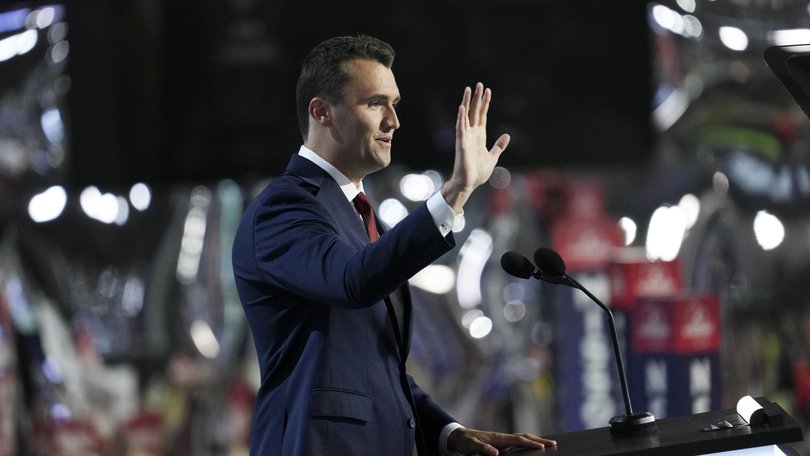THE NEW YORK TIMES: How Charlie Kirk remade the young right
THE NEW YORK TIMES: He seemed like a guy who would be popular on campus. In this way, he was a harbinger and then an embodiment of Trump-era populism.

Conservatism on college campuses has traditionally mixed tweedy intellectualism, shock-value provocation and ruthless training for future GOP operatives. All of these forms — and I say this with familiar affection — have tended to attract nerds and dorks and oddballs, campus outsiders, the inherently uncool.
Charlie Kirk, murdered Wednesday talking to college kids at Utah Valley University, built his career and reputation organizing a different kind of campus conservatism — fun-loving, masculine, rowdy, mainstream, even faintly cool.
He seemed like a guy who would be popular on campus, who would be invited to the good parties, who would have friends outside of political activism, who wouldn’t just show up in a bow tie plotting how to take over the Young Republicans.
Sign up to The Nightly's newsletters.
Get the first look at the digital newspaper, curated daily stories and breaking headlines delivered to your inbox.
By continuing you agree to our Terms and Privacy Policy.The fact that he was himself a college dropout, leaving college early to found Turning Point USA, was almost the perfect touch: There is nothing more normally American than choosing a really good entrepreneurial opportunity over the full undergraduate four years.
In this way, he was a harbinger and then an embodiment of Trump-era populism — a spokesman for a youthful right that seemed both more rebellious and more relaxed (like a good college hangout) as progressivism became more institutionally dominant and uptight, and that had a particular appeal to not-especially-ideological young men.
But Kirk didn’t abandon the nerdy-controversialist side of campus conservatism; he tried to embrace it and live it out, as well, showing up on his college tours ready to debate and argue publicly with anyone, liberal or far left or further right.
And what he argued for, in general, was not some extreme or esoteric form of right-wing politics. He wasn’t a school of one, a would-be philosopher of nationalism or a prophet of post-liberalism.
He belonged to and maneuvered within the Trump-era conservatism mainstream, which meant he could be combative and pugilistic and say extreme things (this is 2025, after all) while remaining closer to a normal Republican voter than to the very-online vanguard.
I was supposed to interview him next month, for my podcast, “Interesting Times.” The show tends to emphasize the extremes of our moment, the opening of radical and reactionary possibilities.
But I was interested in talking to Kirk about stabilisation — whether there can be a real centre for conservatism as we move toward the last years of President Donald Trump and whatever lies beyond; whether his particular persona, and especially his evolution from college bro to Christian dad, was modelling a more fundamentally normal future for the right than some of the later-Trump-era alternatives.
Now I won’t be asking him those questions, and he won’t be helping to answer them. God be with his wife and children, God be with our country, and may he rest in peace.
This article originally appeared in The New York Times.
© 2025 The New York Times Company
Originally published on The New York Times
